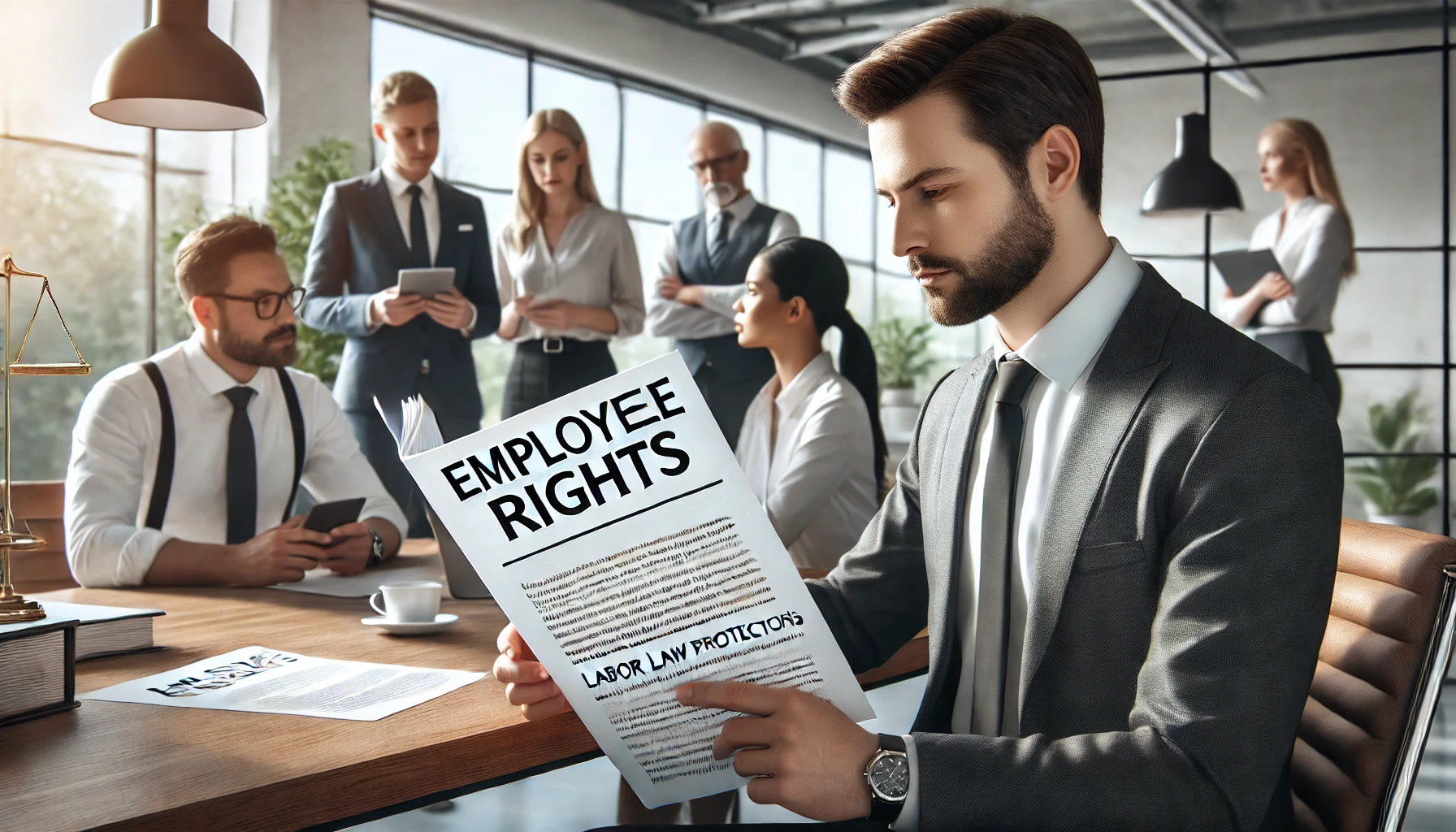Whether you’re starting your first job, changing careers, or simply want to ensure you’re being treated fairly, understanding your labor rights is essential. Labor laws are designed to protect workers from unfair treatment, ensure safe working conditions, and guarantee minimum standards for pay, hours, and benefits.
Unfortunately, many workers are unaware of their legal protections, which can lead to exploitation, discrimination, or unsafe work environments. In this guide, we’ll cover the basics of labor law, focusing on your rights in the workplace and how to take action if they’re violated.
What Are Labor Laws?
Labor laws are regulations that govern the relationship between employers and employees. These laws cover a wide range of topics, including:
- Wages and working hours
- Workplace safety
- Overtime pay
- Employment discrimination
- Harassment and wrongful termination
- Union rights and collective bargaining
- Family and medical leave
Labor laws can vary by country, state, or province, but the core goal is universal: to ensure fair treatment and protect the dignity of workers.
Right to Fair Wages
One of the most fundamental labor rights is the right to receive fair pay for your work. This typically includes:
- Minimum wage: A guaranteed hourly wage that cannot legally be undercut
- Overtime pay: Extra compensation (usually 1.5x your regular rate) for working beyond a certain number of hours per week
- Equal pay for equal work: Employees performing the same job under similar conditions must be paid the same, regardless of gender or other protected characteristics
Check your local labor board or government website to confirm the current minimum wage and overtime rules in your region.
Right to a Safe and Healthy Workplace
Under occupational safety laws (such as OSHA in the U.S. or similar agencies elsewhere), employers must provide:
- A workplace free from known safety hazards
- Proper training for dangerous equipment or chemicals
- Access to protective gear (e.g., gloves, helmets, masks)
- Procedures for reporting and addressing workplace injuries
If you feel unsafe at work, you have the right to file a complaint or refuse to work in hazardous conditions without fear of retaliation.
Right to Be Free from Discrimination
Workplace discrimination based on protected characteristics is illegal in many countries. These typically include:
- Race, ethnicity, or nationality
- Gender or sexual orientation
- Religion
- Disability
- Age (in many cases)
- Pregnancy or family status
Anti-discrimination laws apply to hiring, promotion, pay, discipline, and termination. If you believe you’ve been treated unfairly based on these factors, you can often file a complaint with a human rights or labor commission.
Right to Protection from Harassment
Employees also have the right to a workplace free from harassment, including:
- Sexual harassment: Unwanted sexual advances, comments, or behavior
- Bullying: Intimidation or threats by supervisors or colleagues
- Retaliation: Punishment for speaking up about workplace issues
Employers are legally required to investigate complaints and take action to prevent harassment. In many regions, failing to do so can result in legal consequences for the company.
Right to Family and Medical Leave
Many countries provide job-protected leave for:
- Maternity and paternity (parental) leave
- Family care leave (for a sick child or relative)
- Medical leave for personal illness or recovery
- Bereavement or compassionate leave
Laws such as the Family and Medical Leave Act (FMLA) in the U.S. require that eligible employees can take unpaid leave for these reasons without losing their jobs or health benefits.
Right to Join or Form a Union
Workers have the legal right to organize, join labor unions, and bargain collectively with their employer. This includes:
- Attending union meetings
- Discussing work conditions or pay with coworkers
- Electing representatives
- Striking (in some cases, depending on the type of work and local laws)
Employers cannot legally fire or punish you for union activity. However, union rights vary significantly by country and industry, so it’s important to research the laws where you live.
Protection from Wrongful Termination
Most workers are employed under at-will employment or fixed-term contracts. However, even at-will employees can’t be fired for illegal reasons such as:
- Retaliation for whistleblowing
- Reporting safety violations
- Filing a discrimination or harassment complaint
- Taking protected medical or family leave
If you believe you were fired unfairly, labor law may offer a path to file a wrongful termination claim or seek compensation.
Your Right to a Written Employment Agreement
In many countries, employers must provide a written employment contract or at least a job offer letter outlining:
- Job title and description
- Salary and benefits
- Hours and schedule
- Leave entitlements
- Termination conditions
Always keep a copy of your employment documents. They are essential if you ever need to prove your rights were violated.
How to Address Labor Law Violations
If your workplace rights are being ignored or violated:
- Document everything: Keep records of emails, schedules, pay slips, or conversations.
- Report internally: Use your company’s HR department or grievance process.
- Seek legal advice: Labor lawyers or nonprofit legal clinics can guide you.
- File a complaint: With your regional labor board, equal employment agency, or safety authority.
- Contact your union: If you’re a union member, they can help advocate for your rights.
Many workers fear retaliation for speaking up, but retaliation is illegal in most places and can lead to serious consequences for the employer.
Final Thoughts: Know Your Rights, Protect Your Future
Your job is not just a source of income—it’s a part of your life, your health, and your dignity. Labor laws exist to ensure you’re treated with respect, paid fairly, and protected from abuse.
You don’t need to be a lawyer to understand your rights. Learn the basics, stay informed, and don’t be afraid to ask questions or seek help when needed. Empowered workers build safer, more just, and more productive workplaces for everyone.
